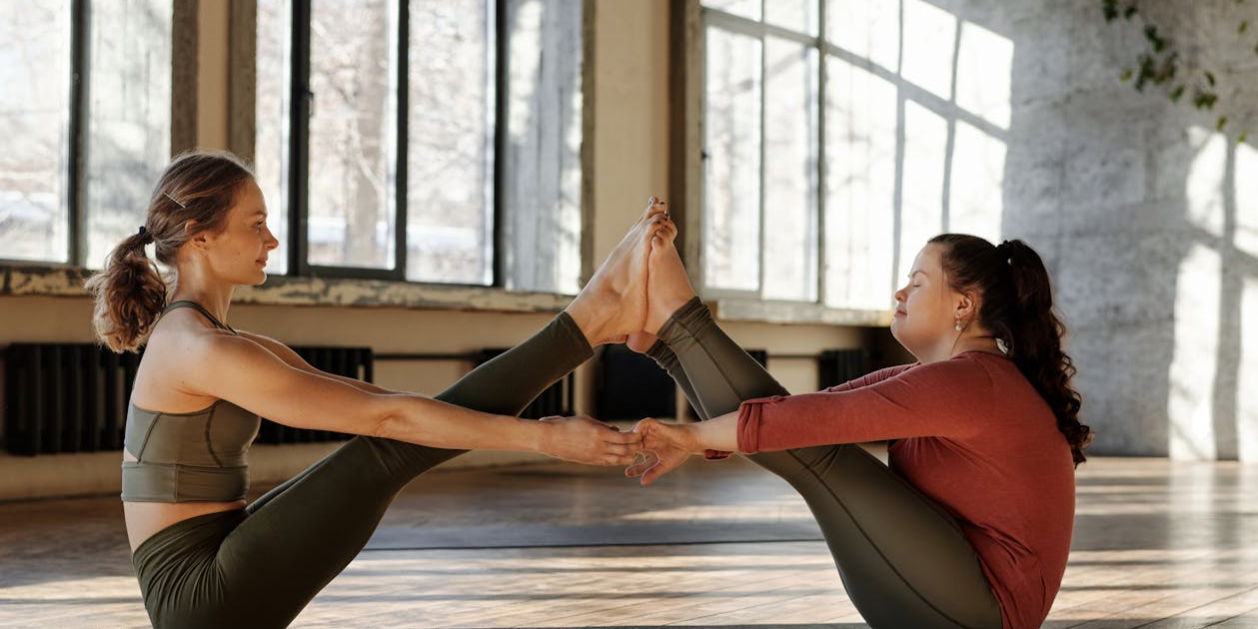Exclusively written for flawlessfoundation.org
by Janae Bromley
For many, yoga is a calming, low-impact physical activity that helps them keep fit. At the same time, yoga’s spiritual and psychological aspects make the practice impactful for mental wellness. Based on a 2023 Frontiers in Psychology study, years of research indicate yoga’s psychological benefits, including an increase in overall well-being. Researchers also note that yoga helps foster practices like mindfulness, body consciousness, self-transcendence, social connectedness, and spirituality, which can help nurture positive emotional experiences.
Studies have shown that yoga practitioners experience higher well-being than non-practitioners and practitioners of other spiritual practices. Even online yoga intervention was able to increase study participants’ well-being. If you’re interested in trying out yoga, this post will look at some of the ways yoga can support mental wellness:
Embracing spirituality
When considering mental health, it’s essential to acknowledge the importance of spirituality. While seemingly unrelated, spirituality helps people feel more connected with themselves and those around them. For those struggling with mental health concerns, becoming more spiritual can help address issues such as poor self-esteem, low confidence, lack of self-control, and fear of daily tasks and challenges.
Insights from this article on “The Spiritual Benefits of Yoga” highlight how yoga can help alleviate depression, anxiety, and insomnia, allowing your body and mind to heal. Breathing techniques in many yoga poses also help practitioners slow down, forget distractions, and focus on self-awareness and balance. As such, yoga practitioners keep up the practice as a form of self-care, allowing them to focus energy on feeling physically and mentally better and improving their quality of life.
Staying unplugged
One of the fundamental tenets of yoga is practicing and embracing mindfulness. As such, many also rely on yoga to stay “unplugged” from their digital device use. Whether checking one’s smartphone for social media updates or typing on a computer during long working hours, yoga provides an opportunity for one to stay in the present and be more mindful.
Our previous post on “Embracing Digital Detox” highlights the importance of pausing to reflect on disconnecting from technology. At the same time, staying unplugged doesn’t mean abandoning technology or going off the grid indefinitely but redirecting your focus and staying present in the practice. In fact, modern digital solutions available today can also be helpful for yoga practitioners, whether beginner or intermediate. Nowadays, countless yoga, meditation, and mindfulness smartphone apps make practicing yoga more accessible and convenient. You can also rely on mindfulness digital solutions to help you stay unplugged, promoting reduced screen time and staying present.
Fighting aging
Finally, yoga can also help prevent aging. Earlier this year, research from the JNHA indicated yoga as a promising approach for frailty prevention and management, which can impact systems involved in stress response as well as metabolic and musculoskeletal processes. Notably, yoga is known to improve stress regulation and neurocognitive resource efficiency, making mindful yoga movements and meditation potentially more beneficial to cognitive health than traditional physical exercise, helping prevent age-related cognitive decline.
Of course, yoga is also significantly beneficial for physical wellness, from the cardiovascular and pulmonary systems to the musculoskeletal systems. By keeping yourself physically healthy and fit, you can better and more efficiently complete your daily tasks, hobbies, and interests, subsequently benefiting your mental wellness as you age.
Ultimately, yoga’s relaxing and slowed-down philosophy can significantly support one’s mental wellness. In an increasingly fast-paced and digital world, taking a moment to breathe and strike a yoga pose or two can help you maintain your mental well-being while keeping yourself physically fit along the way.







